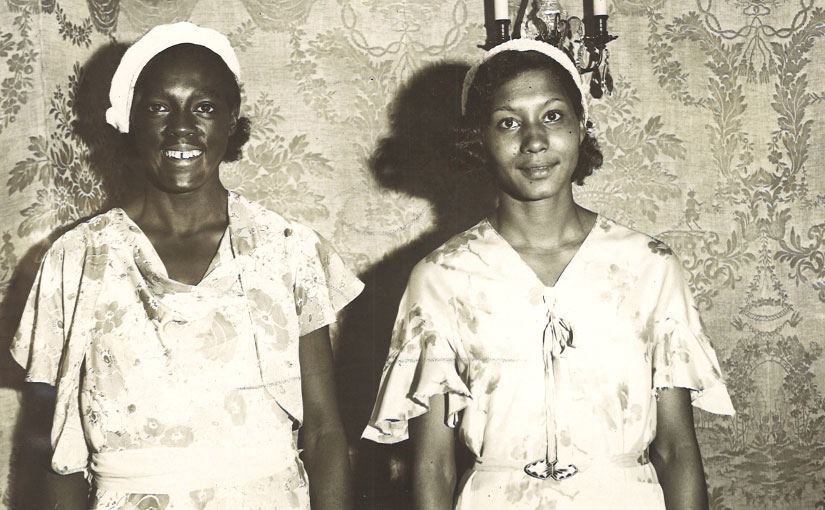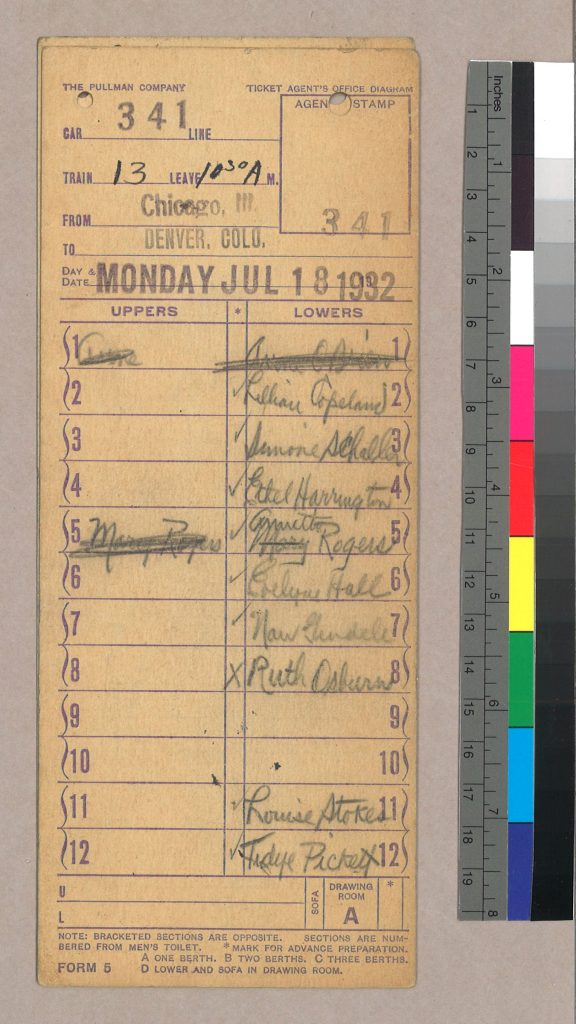by Greg Bond, Sports Archivist and Curator, Joyce Sports Research Collection
When they qualified for the 1932 Los Angeles games sprinters Louise Stokes and Tidye Pickett were the first African American women to make the United States Olympic team. Based on their strong times at the Olympic trials, Stokes and Pickett were named to the pool of six women that would be chosen for the 4×100 relay team (in those years the final official team was chosen a short time prior to the actual competitions).
The 18-year-old Stokes (from Malden, Massachusetts) and 17-year-old Pickett (from Chicago) were the only African Americans on the U.S. women’s team. But a large contingent of women athletes was, itself, relatively new. Only a few women had appeared in the first several Olympics. Starting with the 1928 games, though, the International Olympic Committee sanctioned women’s competition in a broader range of events, including more strenuous activities like track and field
The Fred L. Steers Papers in the Joyce Sports Research Collection holds manuscript material that documents the 1932 Los Angeles Olympics experience of Stokes, Pickett, and their teammates. Steers, a track athlete and 1911 graduate of Notre Dame, worked as a lawyer in Chicago and was a long-time administrator for the Amateur Athletic Union and the American Olympic Committee, the forerunner of the modern United States Olympic Committee. During the 1928, 1932, and 1936 Olympics, Steers was the Manager of the United States Women’s Track and Field Teams where he was in contact with the two African American women Olympians.
Historians who have written about Stokes and Pickett note that they frequently faced discrimination during their time on the Olympic team. Their own teammates sometime hazed them. They also routinely encountered the color line and were often not allowed to eat with the rest of the team—including in the dining room of the team hotel in Los Angeles.
Nevertheless, due to their fast qualifying times Stokes and Pickett had originally been expected to be members of the final American 4×100 relay team. Before the event, however, athletic administrators reshuffled the lineup and replaced the African Americans with two of their white teammates. The Chicago Defender, one of the country’s most influential African American newspapers blamed “this bit of back room treachery” on “lily-whiteism” and reported that “the injustice of this move is being placarded by track followers out here but to no avail” (“Tydia Pickett May Lose Olympic Spot,” Chicago Defender 30 July 1932, p. 8).
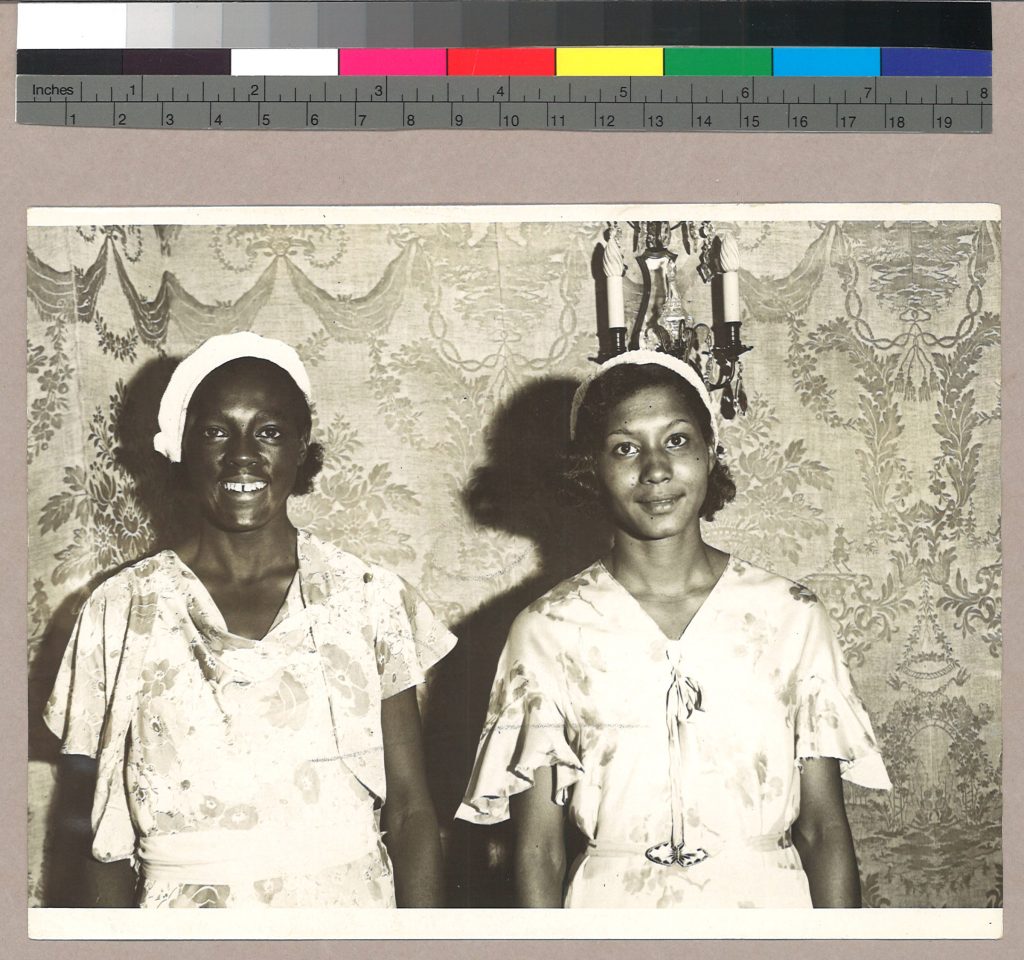
Unfortunately, the Steers Papers does not contain any additional information about the decision to bench Stokes and Pickett. But the collection does include documentation about their presence with the U.S. Olympic team. One of the most prominent items is a rare photograph of Stokes and Pickett posing together in street clothes (MSSP 5000-56: X Olympiad, Los Angeles. Photographs, 1932). A clipping from the Los Angeles Herald Express includes a large picture titled “American Girls’ Track Team Arrives” showing Stokes (standing, right) and Pickett (kneeling, second from left) with their teammates (MSSP 5000-57: X Olympiad, Los Angeles. Newspaper clippings, 1932).
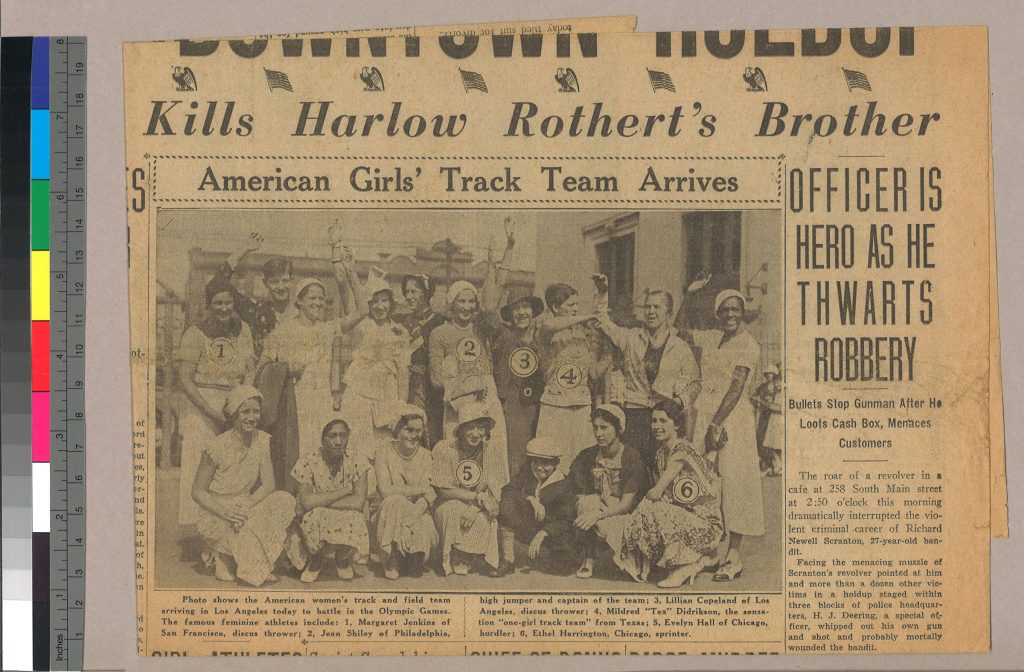
The Steers Papers does contain an original manuscript item attesting to some of the discriminatory treatment encountered by the two African American women. A passenger list and reservations receipt for the train trip that the U.S. women’s Olympic track and field team took from Chicago to Denver en route to L.A. suggests that Steers racially segregated the athletes while they were on the train. The passenger card shows the lodging arrangements for the team and indicates that Steers placed Louise Stokes and Tidye Pickett in berths 11 and 12 of Pullman Car #341—separate from and two bunks away from the rest of their white teammates (MSSP 5000-54: X Olympiad, Los Angeles. Miscellaneous ephemera, 1932).
Other documents describe the presence of the two Black athletes as members of the U.S. contingent. A July 16, 1932, telegram from Fred Steers to the American Olympic Committee, for instance, lists the full official roster of the women’s track and field team. The handwritten telegram includes Louise Stokes and Tidye Pickett on line 5 as members of the relay team (MSSP 5000-52: X Olympiad, Los Angeles. Fred L. Steers correspondence, 1932).
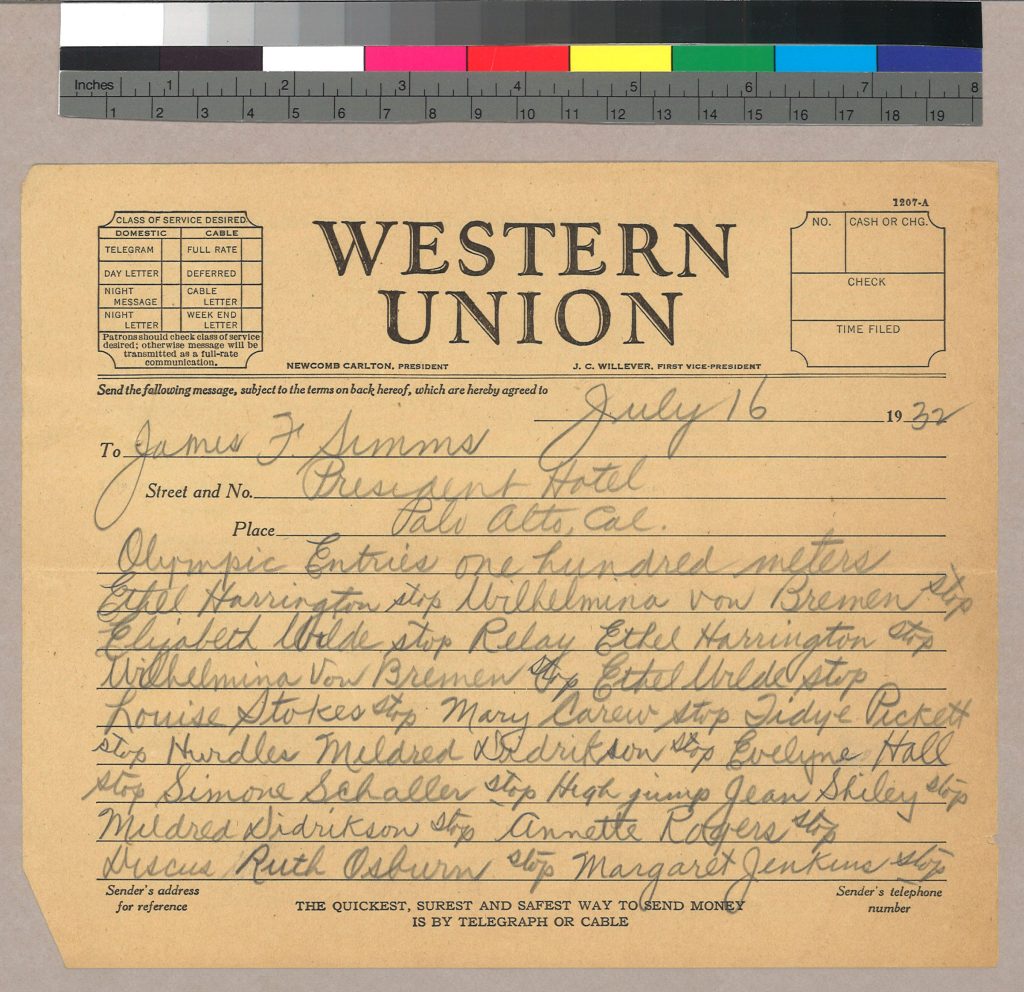
The collection contains a multitude of other ephemera related more generally to the 1932 Los Angeles Olympics. Significant items include a referee’s badge from the “Final Olympic Track & Field Tryouts for Women” held at Northwestern University’s Dyche Stadium on July 16, 1932 (MSSP 5000-55: X Olympiad, Los Angeles. Miscellaneous ephemera, 1932), and an unused ticket for events at the “Track and Field Olympic Stadium” on August 6, 1932 (MSSP 5000-54: X Olympiad, Los Angeles. Miscellaneous ephemera, 1932).
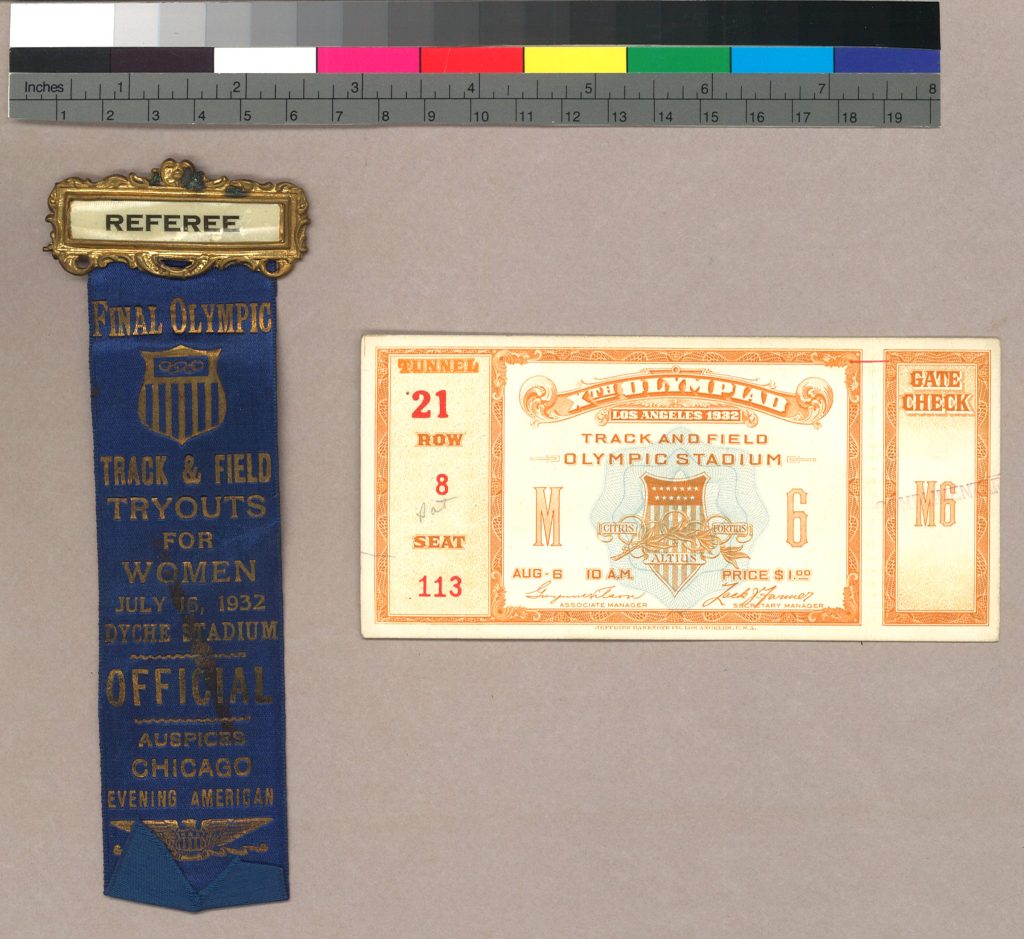
Louise Stokes and Tidye Pickett were again members of the U.S. team for the 1936 Berlin Olympics. Their trailblazing athletic careers helped pave the way for future generations of African American women Olympians.
The Fred L. Steers Papers contains plentiful records related to the United States Olympic Teams and other amateur sports from 1916–1967. The collection is open to the public and available for research.
